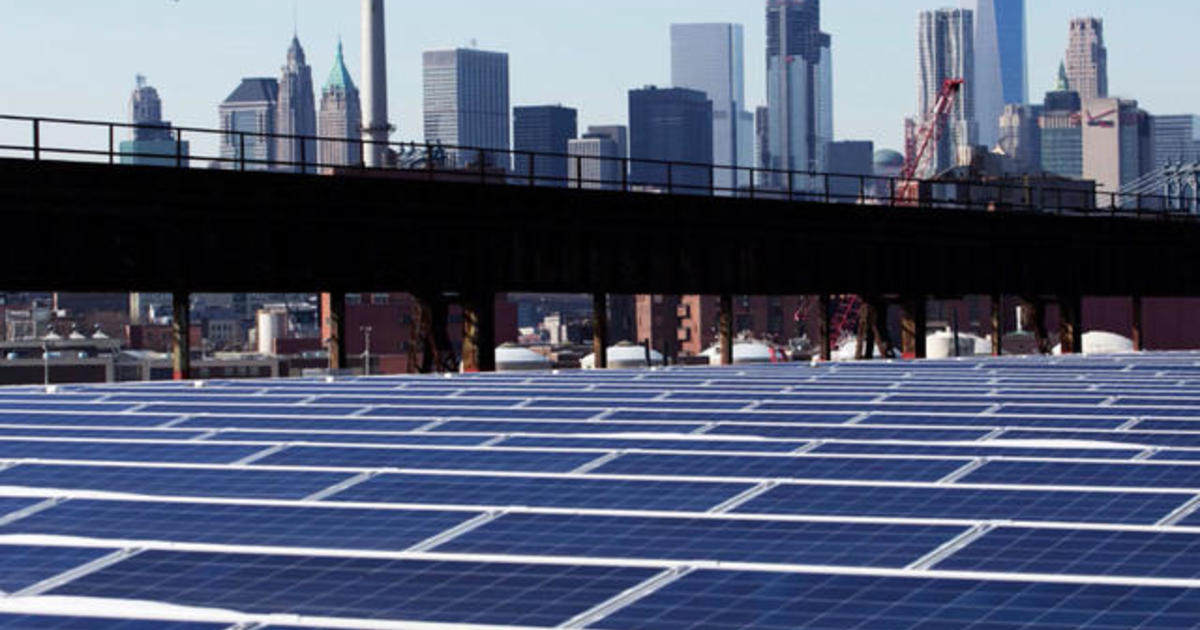/ MoneyWatch
Microsoft wants to erase 45 years of emissions
Microsoft is planning to become "carbon negative" by 2030, eventually removing more carbon from the environment than it emits. The company will also reduce emissions to zero across its entire supply chain. And once it reaches zero, it plans to remove all the carbon it has emitted — either directly or through electricity consumption — since its founding in 1975.
"When it comes to carbon, neutrality is not enough," Brad Smith, the company's president, said on Thursday. "We have to get ourselves to net zero."
The company also said it would lobby for policies to put a price on carbon and bring clean energy technology to scale faster. Microsoft is part of a coalition of companies backing a carbon tax.
Carbon removal
The concept of removing carbon from the atmosphere has garnered more attention as the window of time for the planet to sharply reduce greenhouse gas emissions narrows. Methods to remove carbon range from nature-based, such as planting large amounts of trees or using soil management techniques that absorb carbon, to technological methods that are still in their infancy, like capturing carbon directly from the air.
"Technology does exist that does this, but getting the price and the scalability to where we need it to be is a significant challenge," said Lucas Joppa, the company's chief sustainability officer.
Microsoft will initially focus on nature-based methods like restoring degraded forests and planting new ones, Joppa said. It will also invest $1 billion into a fund for carbon removal and reduction technology.
"This is what science says we have to do, and we can't be the only ones. This can't be seen as 'ambitious' moving forward," Joppa said.
He added, "If we're going to achieve what science says we have to achieve, we have to remove carbon [from the atmosphere.]"
The company did not offer a precise figure for the amount of carbon it has emitted in its lifetime. Every year, it emits the equivalent of 16 million tons of carbon dioxide, Smith said. That estimate includes not just Microsoft's global network of energy-chugging data centers, but emissions from making electronics components for its devices and from everyone who plugs in its Xbox gaming consoles at home, the Associated Press reported.
The pledge to include supply-chain emissions expands an earlier promise to run Microsoft's data centers primarily on renewable energy, It also follows a similar move by Apple.
Microsoft plans to push its suppliers to cut their environmental footprint, in the same way it has required some of them to offer their workers paid time off and parental leave. It's also expanding the scope of a fee it has had since 2012, which charges its own business units for each ton of carbon they emit.
Pressure on governments, not on clients
Environmental activists praised the company's intent to push for low-carbon policies.
"A company's most powerful tool for fighting climate change is its political influence, and we're eager to see Microsoft use it," Elizabeth Sturcken, managing director of EDF+Business, said via email.
Likewise, Microsoft's promise to make up for its historical emissions could set an example for others. No company has yet made such a commitment, but it's been a sticking point in climate negotiations with developing countries that are suffering many of the worst effects of a climate crisis they did little to cause, said Gary Cook, senior IT sector analyst for Greenpeace.
"This has been a topic in the climate negotiations for ages," said Cook. "This is both justified by the climate science and is also what should be fair."
However, Cook and other environmental experts called out Microsoft's decision to keep working with oil and gas companies, which make use of cloud software to speed up extraction of fossil fuels. Amazon's AWS service has also come under fire from activists and employees for its work with fossil-fuel clients.
"There's a real disconnect between what they're doing within their own company and their empowering [of] dirty energy," Cook said. "We see this in many companies."
The announcement comes ahead of the World Economic Forum's annual gathering in Davos, Switzerland, where the agenda will focus on the risks of a changing global climate. "Climate-related risks overshadow all other risks," the forum's recent annual report concluded.
